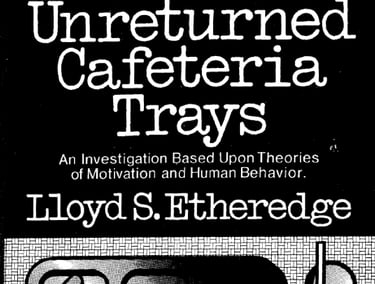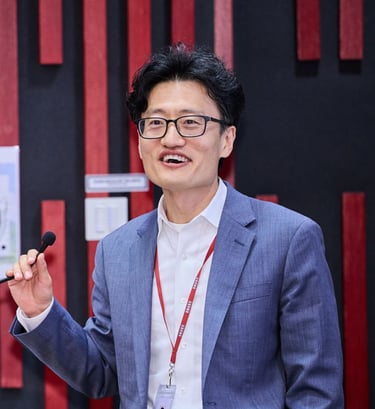An Online Workshop to Help Beginners
Learn Scientific Research
Where do ideas start? See how research questions are born, framed, evidenced, communicated — and how you can do it too.
Scientific Research Made Simple
Human beings are not scientifically intuitive. We use stories as the primary way of thinking and communicating.
That's is why I teach scientific research with stories.
This workshop is for you
if you struggle to find a research idea, and don't know where to start.
if you want to shift your mindset: from being a student to a researcher
if the advice "following your passion" did not help you...
if you desire to explore academic interests, but don't want to be molded into a pre-defined box.
Here is How I Do it
Story-based learning
Illustrate how ideas are initiated, framed, evidenced, presented, criticized, extended, and ideally published, cited and applied!
Build curiosity into a habit
Start by observing and questioning.
See the world like a scientist.
Model the best
Exposure to great research.
Learn by doing and learn by mimicking.
1
2
3
Shift your mindset
A good student: absorbing existing knowledge
A good researcher: discovering new knowledge
4
Meet Your Guide
Hi, I’m Jinhua — a MIT professor and a father of two teens.
When my kids started high school, I asked myself: Can scientific research be made simple enough for a 15-year-old?
Albert Einstein said “Everything should be made as simple as possible, but not simpler.”
I invite beginners to think like a scientist — to build curiosity as a habit, model the best, solve real problems, and build confidence doing it.
If you’ve ever wanted to do research, I am offering the most accessible and structured way I’ve found to begin.
Learn Scientific Research Through Stories
How are ideas born? What is a good scientific question? And a set of scientific methods feasible for beginners
Story 1: Unreturned Trays: 30 Theories to Explain One Behavior
How are ideas born?
Seeing the world as a scientist
What is a good question? CRISP Method
Mechanics: 5 components of research


Story 2: Is Uber Making Our Cities More Sustainable?




Stand on the shoulders of the giants
Your idea at the center of the Venn diagram
Full lifecycle of a research project
Who cares about your research?
Story 3: An Experiment on MIT Campus: Fighting Climate Change
Data, Measurement, Surveys
Experiments, Randomized Control Trial and Causal Inference
Integration: Questions, Literature, Data, Analytics, and Results
What's covered
Gain curiosity, clarity and confidence in this full Masterclass Experience
Students will walk away with a complete, step-by-step system to identify your own research ideas
Start by observing — build curiosity into a habit
Translate your observations into scientific questions — something you created, you own, and you actually care
Model the best Learn by doing and learn by mimicking
Research is storytelling with evidence — and how to write like that
A clear next step — entering a science fair, presenting at a conference, or just exploring further
What's Included:
Live Zoom Workshop (2 Hours)
A hyper-interactive workshop where I walk you through each step: build curiosity into a habit, tell my three stories, expose you to the best, and shift your identity
Live Ask Me Anything Q&A (30 mins)
Bring your ideas, questions, and obstacles to this follow-up Q&A where I’ll coach you through them live.
Plus:
Bonus #1: A Workbook for 5-Day Research Design Challenge
For you to develop and refine your idea in five structured days.
Bonus #2: An A.I. Companion
For you to generate, refine, and evaluate your research hypotheses
Bonus #3: A Parent Guide
For parents to be part of the team—to experience the struggle and joy along with your children
Bonus #4: Resources for “Next Steps”
A list of science fairs, competitions, internship, and conferences for young researchers
Bonus #5: Lifetime access to the recordings of the workshop
Go back to course content and recordings whenever you need to restart your idea: over the weekend, over winter break... You’ll have a repeatable system they can use again and again.
Cannot attend the live session?
The best part isn’t even the workshop...
It's what happens after.
It’s unlikely students will absorb all the information within two hours.
I've designed a process for parents and students to work together after the workshop to iterate the idea and questions.
You will have access to the workshop recording, a guide to the parents, and a five day research design challenge — a repeatable system you can use any time again and again — not just a one-time boost..
Even if you can’t attend live, you should still enroll and use the system.
Saturday, August 23, 2025
8:00pm-10:30pm ET (US Eastern Time)
5:00pm-7:30pm PT (US West Coast Time) I August 24 8:00am-10:30am Beijing Time
USD $150
Price goes up on August 10
Join the Waiting List
Drop your email— I’ll share more details and future sessions...
Contacts
jinhua@jzresearch.org

